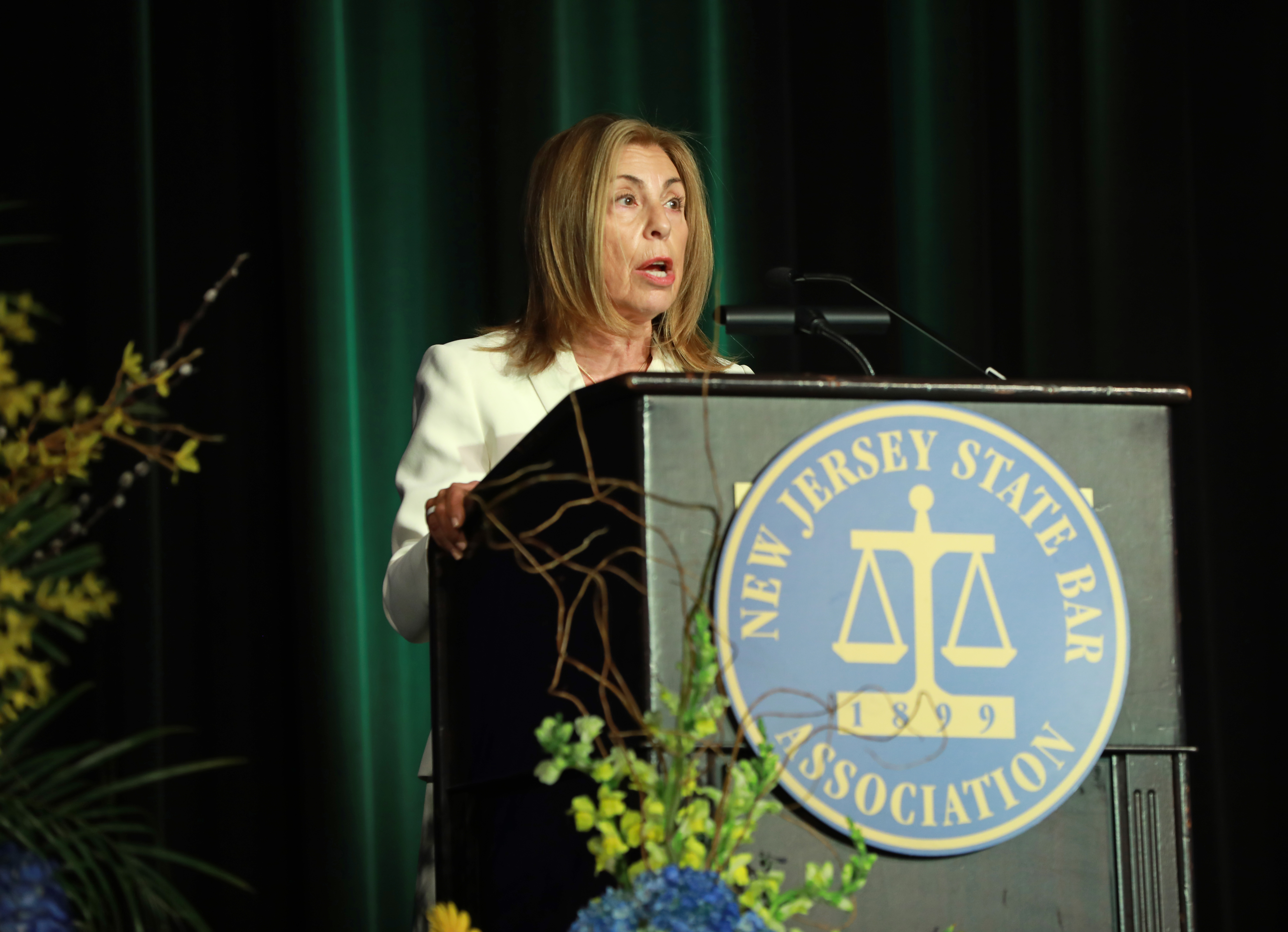
NJSBA President Jeralyn L. Lawrence said the issue is a top priority for the Association.
"The New Jersey State Bar Association is extremely concerned regarding the issue of judicial vacancies, as our state courts are in crisis and have been so without any meaningful relief or assistance. It is unprecedented that we face in the not-too-distant future three vacancies on the Supreme Court, which is not what the framers of our Constitution ever intended. Given the dire consequences the Chief Justice shared today, we urge all parties to fill these vacancies with utmost urgency for the sake of the public and the legal system," she said.
On the reopening of the courts, Rabner announced that all state courthouses have once again resumed in-person jury trials and grand juries with necessary health precautions. All courthouses can now conduct at least two criminal trials at the same time, and some can hold four or more at once, he said.
Rabner commended the court system’s pivot from an in-person operation to a virtual one almost overnight at the onset of the pandemic. Since March 2020, state courts have conducted roughly 365,000 virtual proceedings that involved more than 5.5 million individuals, he said.
"Our work has been critical these past two years. Covid-19 underscored the essential role that courts play in our lives, particularly in the lives of our most vulnerable citizens,” Rabner said. “In a time of crisis, the courts served as a place for the public to seek vital assistance, to seek justice.”
Balancing in-person and virtual hearings will be an important debate going forward, Rabner said. Attorneys seem to favor holding routine matters remotely, he said, while defendants have the right to face their accusers and the jurors who will decide their fate.
“Striking the right balance between virtual and in-person proceedings is key, and we will revisit that issue time and again with your input,” Rabner said.
Update from the District Court Wolfson said the federal court moved “full steam ahead” on trials as vaccines became more available, leading the courts to lift its health restrictions. Multiple trials are now proceeding simultaneously, following a lull when trials were shut down during the pandemic.
The court has become proficient and prolific in virtual proceedings, with district judges conducting 2,619 hearings and magistrate judges presided over 17,628 matters remotely, Wolfson said.
“Being in-person is important and often times necessary,” she said. “However, we have also learned that there are proceedings that can and should be done more efficiently and economically.”
Court security remains a pressing concern, as threats against judges and court officials multiplied from 926 in 2015 to 4,511 in 2021, according to the U.S. Marshall Service, Wolfson said. The state legislature last year passed a law to protect the personal information of all judicial officers, following the killing of a U.S. District Court judge's son at their North Brunswick home. Wolfson, however, said she fears that the judiciary’s “personal safety and security is taking a backseat,” with federally privacy legislation currently stalled.
On judicial vacancies, Wolfson said the District Court is grappling with the same problem. New Jersey’s District Court will again lack its full complement of 17 judges this year, a recurring theme since 2013, Wolfson said. As an aside, the Judicial Conference of the United States determined that the New Jersey district should have 22 judges based on its caseload. The district is also one of six in the nation labeled in most need of judges by the Conference, according to Wolfson.
“Here we are, a year later, and congress has taken no concrete to create any new judgeships, even for our district,” she said.